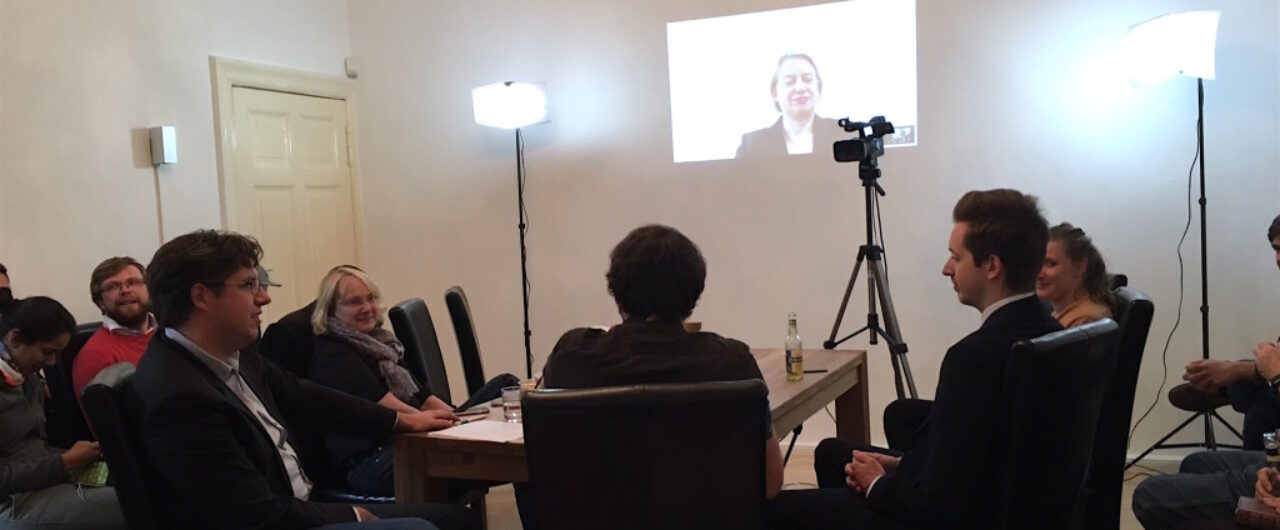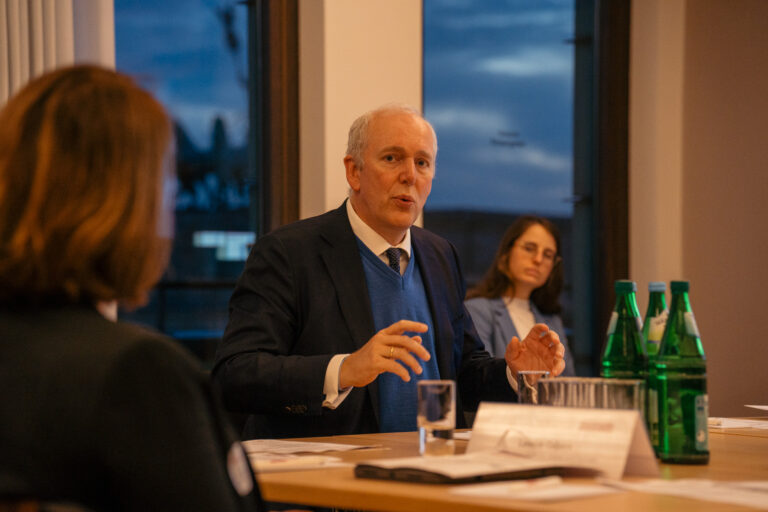On 17 May 2016, Michael Kellner, political General Secretary of Bündnis 90/Die Grünen, discussed with Natalie Bennett, Leader of the Green Party of England and Wales (live via Skype), about European achievements and the perspective of a potential withdraw of the United Kingdom from the European Union. Matt Hanley, Berlin-based Green Party member from the UK, presented the debate at Das Progressive Zentrum.
Bennett and Kellner discussed the increasingly escalating debate about the referendum being held on 23 June to decide whether Britain should leave or remain in the EU. The abrasive tone of the discussion on both sides, the more and more frequent rhetorical exchange of blows between Prime Minister David Cameron and former mayor of London Boris Johnson as well as the heavily campaigning UKIP (UK Independence Party) to leave the EU, make a fact-based campaign to ‘Bremain’ more important than ever. Bennett explained that the Green Party of England and Wales tried to learn from the mobilisation campaign for the Scottish independence referendum 2 years ago, to get in tough with and inform as many people as possible.
Both party representatives agreed that a ‘Brexit’ would be a loss for the UK and the EU not only from an economical perspective, but especially in the context of European values and achievements such as the freedom of movement and the growing together of societies across boarders. On this note, some audience members voiced their concerns about a potential ‘Brexit’ since the consequences this would have for Brits living in other EU member states, are yet to be determined. While Bennett and Kellner expressed cautious confidence that Britain would stay in the Union, to know for sure the outcome of the referendum on 23 June have to be waited for.





